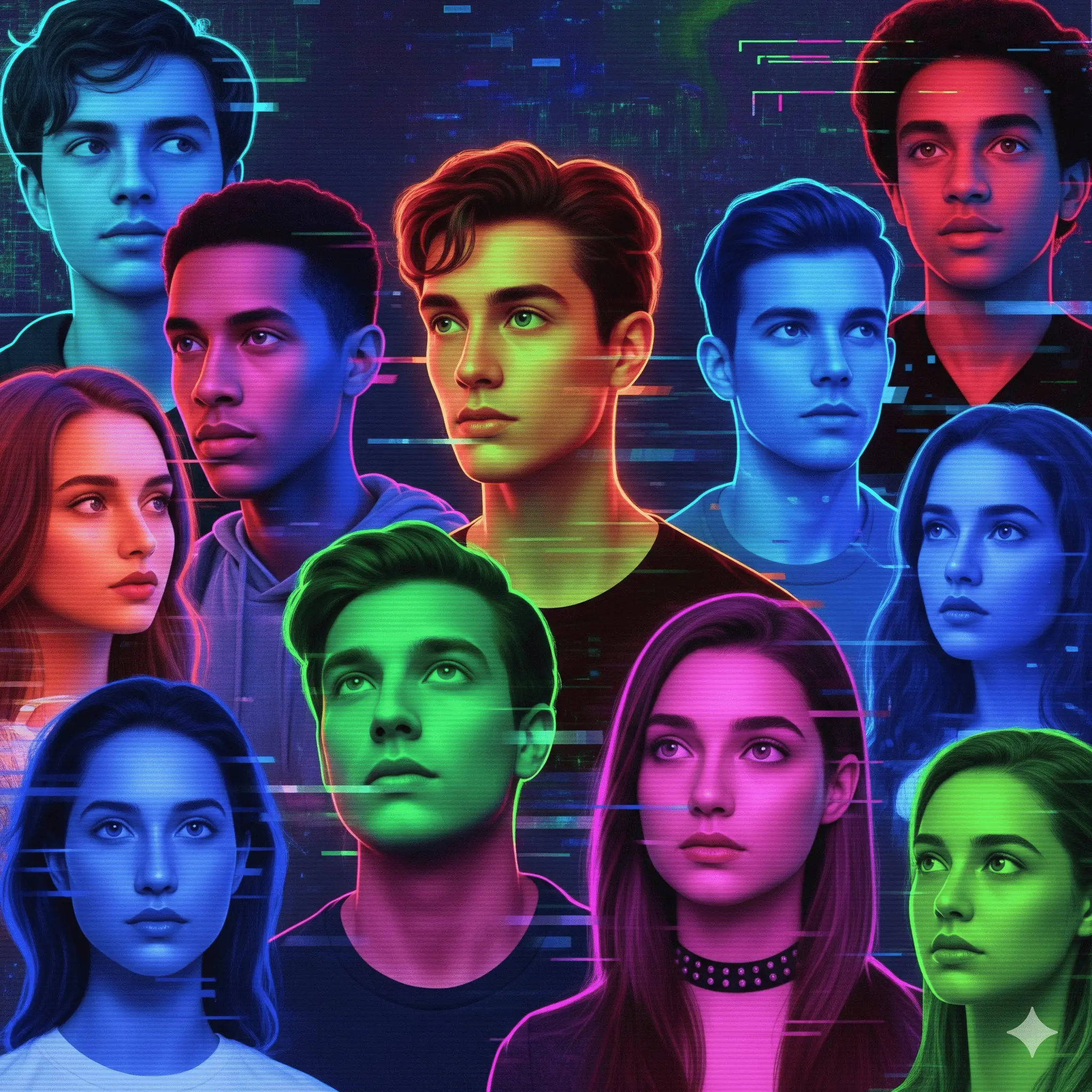Have you recently walked into a shop or restaurant, greeted a young employee, and received only a blank look in return? You say "hello," but the person just stares back, almost as if you were invisible. If this awkward moment sounds familiar, you may have just experienced the 'Gen Z Stare,' a hot-button topic currently taking over TikTok. 👽
What is the 'Gen Z Stare'? The Debate Begins
The 'Gen Z Stare' is exactly what it sounds like: a distinctive gaze attributed to Gen Z (born roughly between the mid-to-late 1990s and early 2010s). It's reportedly most common in customer service situations. The term describes the phenomenon where a Millennial customer (born early 1980s to mid-1990s) approaches a Gen Z employee, and instead of a friendly greeting, they're met with a blank, unresponsive stare.
This term went viral thanks to a 2024 video by TikToker Meghan (@meghan.alessi). She shared an experience where a Gen Z restaurant host just stared at her instead of taking her order, asking, "What is up with this weird stare Gen Z be doing?" The video instantly resonated with countless Millennials, igniting a new flame in the ongoing 'generation wars'.
"It's so weird. You walk into a store, say hi to the employee, and they just stare at you. It makes you feel like you have to initiate the entire conversation. Isn't that just basic manners?" – A comment on a viral TikTok video
Community Reactions: "Like a Buffering NPC" vs. "What Did We Do?"
The 'Gen Z Stare' debate quickly spilled over from TikTok to larger communities like Reddit. Millennials expressed frustration, with one user lamenting, "I asked an employee at Walmart where something was, and she just stared at me like a video game character (NPC) that was buffering." They express strong frustration over the perceived disappearance of basic social courtesies.

On the other hand, Gen Z sees things differently. They argue that the term 'Gen Z Stare' itself is a 'fake phenomenon' created by older generations to negatively label them. "We're just tired," and "We don't want to be forced into excessive emotional labor," are common refrains. Some go further, explaining it as a symptom of social anxiety, ADHD, or a brain rewired by short-form content that struggles to react instantly to the slower pace of real-world interactions.
Key Takeaway: It's Not Just a 'Stare'
The 'Gen Z Stare' might be more than just a look; it could be a sign of a fundamental shift in social interaction. Analysts suggest that while Millennials often prioritize 'connection,' Gen Z tends to value 'efficiency' and 'directness,' a difference that could be breeding this misunderstanding.
Why Does Gen Z Stare? Exploring the Social Context
So, where does this behavior come from? Several compelling theories have emerged.
- Communication Style of Digital Natives: Gen Z is the first generation to grow up with smartphones. For them, communication is often more comfortable through text, emojis, and 'likes'—asynchronous and concise interactions. They prefer getting straight to the point without the preamble of small talk.
- A Victim of the Dopamine Economy?: One Redditor offered a fascinating analysis: Gen Z might be in a state of 'dopamine deficiency.' The theory is that their brains have become so accustomed to the instant, intense stimulation of short-form content that mundane, everyday interactions no longer provide a sufficient dopamine release.
- Economic and Mental Burnout: Unstable job markets, soaring inflation, and the mental toll of a global pandemic have left them exhausted. The 'Gen Z Stare,' in this context, is a survival strategy: a way to conserve energy by performing a task with minimal engagement.
Conclusion: A Generational Misunderstanding and a Chance for Empathy
The 'Gen Z Stare' is too complex to be dismissed as mere 'bad manners.' It's a reflection of our times, encapsulating the changing norms of communication, economic pressures, and mental health challenges in a digital age.
Of course, basic courtesy in a service role is important. But before Millennials rush to judge this behavior as 'rudeness,' perhaps it's worth trying to read the exhaustion and confusion in their eyes. Instead of a lecture that starts with "Back in my day," maybe a simple, "Tough day?" could be the key to turning that blank stare into a smile. What are your thoughts on the 'Gen Z Stare'? 🤔
